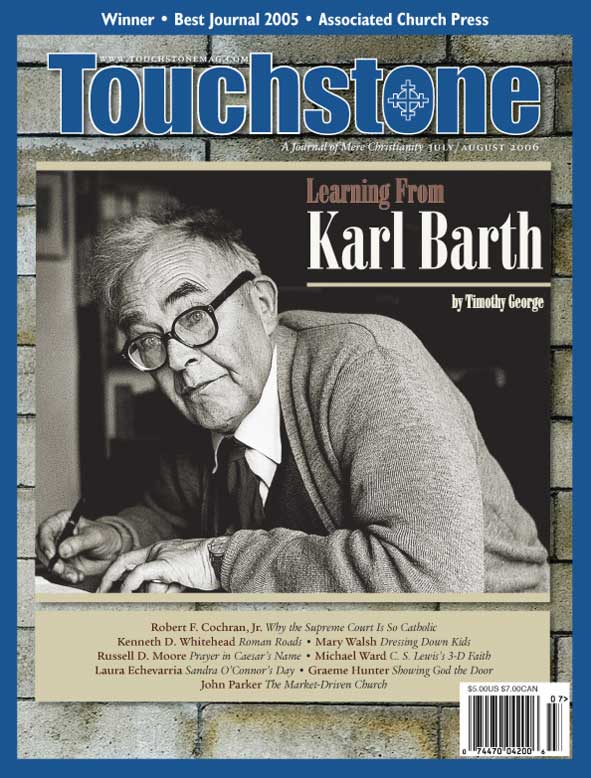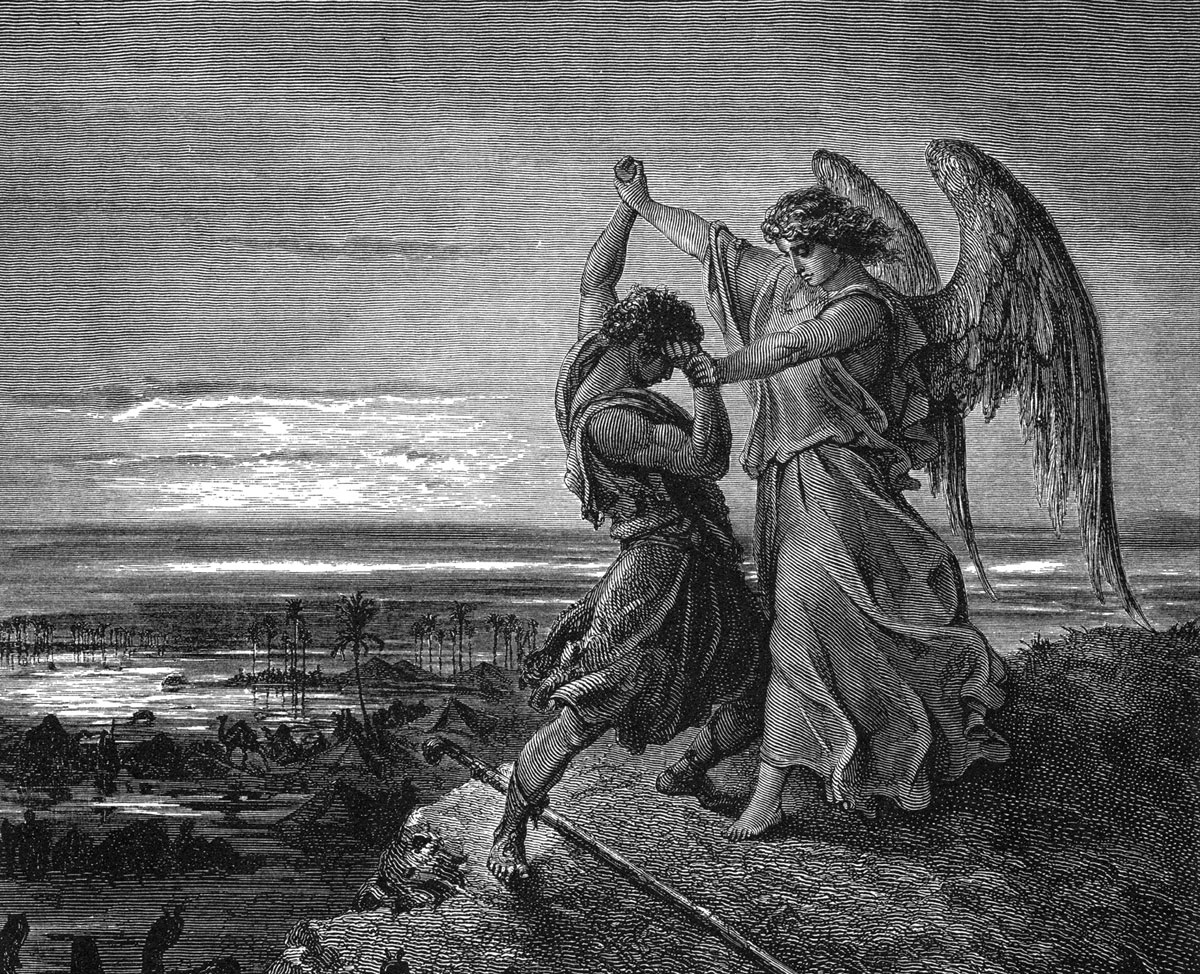An Ecclesiastical Mind
An Evangelical Appreciation of Karl Barth
by Timothy George
The Church runs like a herald to deliver the message. It is not a snail that carries its little house on its back and is so well off in it, that only now and then it sticks out its feelers, and then thinks that the ‘claim of publicity’ has been satisfied. No, the Church lives by its commission as a herald; it is la compagnie de Dieu.
— Karl Barth, Dogmatics in Outline
I was first introduced to the thought of Karl Barth in an undergraduate course on “contemporary” theology. We were asked to read The Word of God and the Word of Man, a collection of Barth’s early sermons and addresses, and though I was not then, and still am not now, a Barthian with a capital “B,” Barth grabbed me right from the start.
Unlike Bultmann’s demythologizing and dismantling of the biblical worldview and Tillich’s abstruse philosophy of religion—they, and a few others, were the “canon” in those days (the sixties)—here was a theology that spoke to the heart, that held high the revelation of God in Holy Scripture, and that was also presented in such a provocative, passionate, and personal way. Here was theology presented as though something eternally important was at stake. Here was a theology that mattered.
Barth’s New World
When I began formal theological studies at Harvard Divinity School, Neo-Kantian and liberationist paradigms prevailed there, and Barth, when mentioned at all, was treated as only of antiquarian interest. But my doctoral studies propelled me back to the Reformation, especially to the connection between the doctrine of election and ecclesiology, and this in turn forced me back to Barth. I remember plowing through Barth’s discussion of predestination in the second volume of his Church Dogmatics and discovering there “a strange new world” I had not encountered before.
True, I shared many of the standard Evangelical reservations about Barth, such as his tilt toward universalism and his challenge to biblical inerrancy, but I knew that I had something to learn from him, especially about the Church. Even though I would not have called him “the great Church Father of Evangelical Christendom, the one genuine Doctor of the universal Church the modern era has known,” as the editors of the English edition of his Church Dogmatics did shortly after his death in 1968, it was clear that I had encountered a titanic figure whose work, I believed, Evangelicals could ill afford to ignore.
From his early days as a young country pastor in Switzerland, Barth understood theology as a spiritual discipline within the community of faith, “the scientific self-examination of the Christian church with respect to its distinctive God-talk,” as he put it at the very beginning of the first volume of Church Dogmatics. But despite this commitment, he could be acutely critical and negative in his statements about the Church. This was especially so in his early writings, where the gospel is depicted in stark opposition to the Church.
The two realities cannot co-exist, for “the gospel dissolves the church and the church dissolves the gospel,” he wrote in his Commentary on Romans, published in 1922. “In the Church,” he declared,
the ‘Beyond’ is transfigured into a metaphysical ‘something’ which, because it is contrasted with this world, is no more than an extension of it. In the church, all manner of divine things are possessed and known, and are therefore not possessed and not known. . . . In the church, faith, hope, and love are directly possessed, and the Kingdom of God directly awaited, with the result that men band themselves together to inaugurate it, as though it were a thing which men could have and await and work for.
Timothy George is dean of Beeson Divinity School of Samford University (www.samford.edu) and an executive editor of Christianity Today (www.christianitytoday.com). A different version of this essay is appearing in Karl Barth and Evangelical Theology, edited by Sung Wook Chung, forthcoming from Baker Academic.
subscription options
Order
Print/Online Subscription

Get six issues (one year) of Touchstone PLUS full online access including pdf downloads for only $39.95. That's only $3.34 per month!
Order
Online Only
Subscription

Get a one-year full-access subscription to the Touchstone online archives for only $19.95. That's only $1.66 per month!
bulk subscriptions
Order Touchstone subscriptions in bulk and save $10 per sub! Each subscription includes 6 issues of Touchstone plus full online access to touchstonemag.com—including archives, videos, and pdf downloads of recent issues for only $29.95 each! Great for churches or study groups.
Transactions will be processed on a secure server.
more from the online archives
calling all readers
Please Donate
"There are magazines worth reading but few worth saving . . . Touchstone is just such a magazine."
—Alice von Hildebrand
"Here we do not concede one square millimeter of territory to falsehood, folly, contemporary sentimentality, or fashion. We speak the truth, and let God be our judge. . . . Touchstone is the one committedly Christian conservative journal."
—Anthony Esolen, Touchstone senior editor









